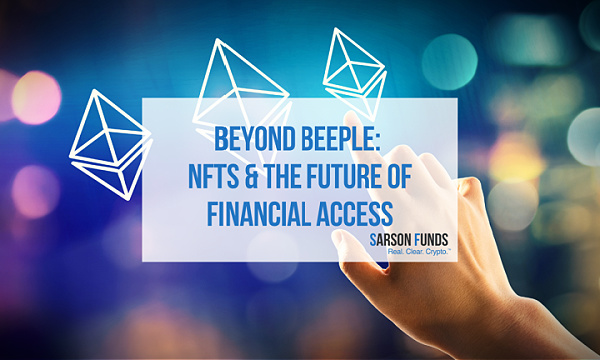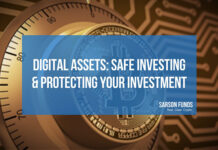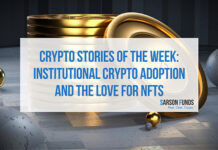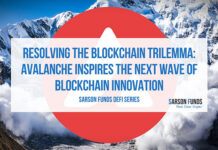By Nathan Frankovitz
Today’s crypto market stands in striking contrast to last year’s. One year ago, crypto assets were recovering from March’s sell-off as they set up the “DeFi summer” of 2020, a period of rapid growth for many DeFi protocols. These bear market rumblings reflected strengthening fundamentals for crypto asset networks, despite a chaotic macroenvironment. With a more favorable economic backdrop entering Q2 of 2021, the maturing DeFi ecosystem provides a foundation for the next trending category of crypto assets to bring value to the blockchain: NFTs, or “non-fungible tokens”. By enhancing the possibilities of digital asset ownership, tokenization is poised to disrupt enormous industries. In this article, we will explore how mass market access to tokenization is set to change our economy forever.
“Tokenization” is the process by which assets are issued unique identifiable digital representations on a blockchain, or NFTs. Because NFTs can be programmed to capture creator royalties, trade globally on secondary markets, and are easily verifiable via the blockchain, they are an attractive new technology for artists. Market excitement for NFTs skyrocketed in Q1 2021, famously culminating in the $69M sale of Beeple’s “Everydays: The First 5,000 Days”. However, even Beeple himself ushers caution. “I think there’s just a lot of hype right now…” “…it [the hype] might wipe out a lot of projects that didn’t have real, actual value. But I think the technology [tokenization] itself is sound enough that it’s going to outlive that and it’s something that’s going to be around for a while here.” Indeed, more complex NFT applications continue to develop beneath the surface. Beyond art and collectibles, NFTs show promising ability to revolutionize how we interact with real-world assets, virtual worlds, and even govern. Most importantly, NFTs are revolutionizing the world of finance.
Let’s imagine a tokenized property deed. The NFT representation of a deed could be used to compose smart contracts to automatically enforce leases or mortgages. In this hypothetical, Person X agrees to lend Person Y $400,000 to fund the purchase of a property. However, if person Y fails to keep up with their contractual obligations, the smart contract automatically returns the property deed NFT to Person X, as outlined in X and Y’s original agreement. By choosing to use NFT-enabled smart contracts, both Person X and Person Y save money by eliminating a costly and historically self-serving intermediary, the mortgage industry. This is the magic of “trustless” smart contracts. No trusted third party is needed to enforce the agreement, nor is any legal counsel needed to arbitrate potential disputes, since X and Y’s contract was designed to account for all possibilities before settling irreversibly. This gives rise to the popular crypto adage, “Code is law”. By disintermediating third parties, smart contracts reduce risks and costs associated with human capital, error, law, fraud, etc., freeing resources for redeployment.
Deloitte’s Inside magazine issue 19 supports the case for NFTs as evidenced by the above hypothetical: Greater liquidity, faster and cheaper transactions, and more transparency are all benefits offered by NFT technology. However, we at Sarson Funds believe the most profound benefit offered by NFTs is accessibility. Tokenization reduces financial friction by making assets easy to divide and retrade, eliminating a costly barrier to entry for investors. As more people realize the opportunities that DeFi applications offer, services traditionally reserved for financial institutions (such as lending) will become more efficiently powered by the individually small yet collectively massive efforts of ordinary people. We believe that this economic revolution will heighten America’s ideal of equality of opportunity for the foreseeable future.








